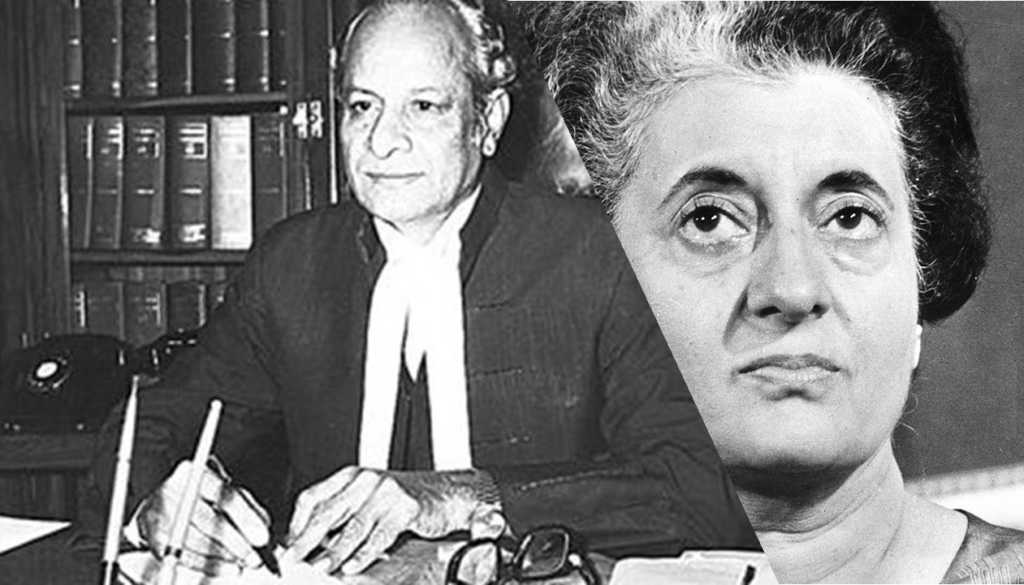Congress, India’s oldest political party has been accused of undermining democracy countless times in the past to serve its own interests. Ex- Prime Minister Indira Gandhi had imposed an Emergency in the country to override the decision given against her interests by the Supreme Court. This was not the only instance where Congress had used its powers to treat the Constitution and democracy below its own party interests. The party and its leaders have countless times imposed a President’s rule in the state to stop opposition parties from forming government. It has also received countless rebukes from the apex court in the past for attempting to demolish the Basic Structure of the Constitution. Time and again, their greed for governmental power drives them to commit numerous sins. Indira Gandhi herself tried to tame the judges of the apex court, while her whims and mood swings decided who would become the Chief Justice of India. Honourable Justice HR Khanna gave a dissenting judgement in the Habeas Corpus case, the result of which was that he never became the CJI. It would not be wrong to say that Judiciary has managed to survive in India despite the Congress, and not because of it. A book written by Mumbai High Court Lawyer Abhinav Chandrachud titled “Supreme Whispers: Conversations with Judges of the Supreme Court of India” highlights the times when Congress had tried to commandeer the judiciary.
S Mohan Kumaramangalam, Cabinet Minister for Steel and Mines in the Indira Gandhi led Congress government, was the first to openly state that the Centre had every right to appoint judges which shared political leanings with the ruling party. He became quite vocal in this regard while justifying the overriding of the judgements of three judges- JM Shelat, KS Hegde and AN Grover. His legacy was passed on to the Congress leaders who continued using this philosophy while appointing judges in the future. Any judge who had anti-Congress views and had even remotely supported or had connections with opposition parties or organisations like the RSS were rejected outright.
An anecdote of this is shared by the writer, citing the time when CJI Chandrachud in 1985 recommended Justice Chandurkar for appointment in the Supreme Court a few months before his own appointment. CJI Chandrachud was informed by the central government that Chandurkar had attended the funeral of RSS leader MS Golwalkar. CJI Chandrachud thought it was preposterous that the appointment of a judge could not be done just because he had attended the funeral of an RSS man. The reply from Indira Gandhi was frank and came quickly, settling all further doubts over the chances of Chandurkar being appointed as a judge. Her reply was “my party people think he’s not good”, and for the first and only time, “Chandurkar is not likely to be helpful to us” (i.e. to her Congress government) she added.
215. @INCIndia BLOCKED appointment of judges to the Supreme Court if they were in ANY WAY associated with the ideology of @RSSorg, or even so much as attended the funeral of an RSS person. [From Supreme Whispers, Chandrachud, 2018] pic.twitter.com/CWDvlcenUq
— Anand Ranganathan (@ARanganathan72) July 4, 2018
The writer also cites the instance when even after CJI Chandrachud’s recommendation, the government did not appoint GP Singh who was Chief Justice of the Madhya Pradesh High Court. GP Singh had refused to recommend the names for appointment to the High Court suggested by a Congress Chief Minister. This was Congress’ way of settling scores with someone who had shown the audacity to disagree with the demands of the party.
Most recently, Congress had tried to pass an Impeachment motion against CJI Dipak Misra for refusing to defer the hearings and judgement on the Ram Mandir Ayodhya case. With utter disregard for the Judiciary and other pillars of democracy, the Congress Party believes in a democracy which lets them rule with complete control. Dissent has never been option during the party’s rule, and will never be were they to be re-elected again in the near future.
